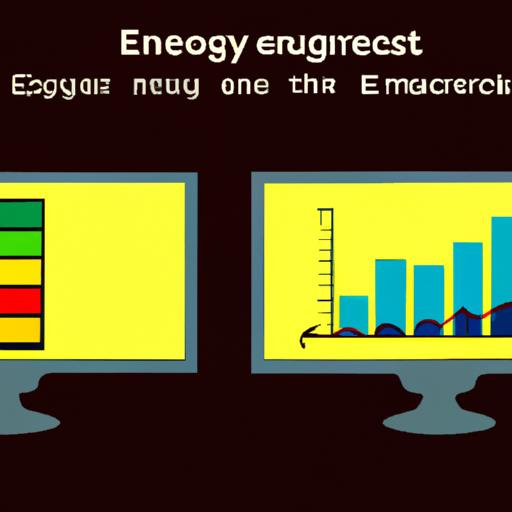Introduction
In today’s digital age, computers have become an integral part of our daily lives. From work tasks to entertainment, we rely on these devices for various purposes. But have you ever stopped to think about how much electricity your computer consumes? Understanding the energy consumption of computers is not only crucial for managing your electricity bills but also for reducing your environmental impact. Let’s delve into the world of computer energy usage and discover why it’s essential to be mindful of this aspect of technology.
As we embark on this journey to uncover the mysteries of computer electricity consumption, we will explore the factors that contribute to energy usage in computers and the impact of high electricity consumption on both your wallet and the environment. So, grab your virtual seat, and let’s unravel the secrets of how computers utilize electricity in our modern world.
Understanding Energy Consumption of Computers
Factors Influencing Energy Consumption
When it comes to understanding the energy consumption of computers, various factors come into play. One significant factor is the type of hardware components within the computer. Processors, graphics cards, and other internal components have different energy requirements, affecting overall consumption. Additionally, the age of the computer and its efficiency in utilizing power can impact energy usage. Moreover, the intensity and duration of computer usage also contribute to electricity consumption.
Types of Computers and Their Energy Usage
Different types of computers have varying energy requirements. For instance, desktop computers typically consume more electricity than laptops due to their larger size and higher processing power. On the other hand, energy-efficient laptops and mini PCs are designed to minimize power consumption while maintaining performance. Understanding the energy usage of different computer types can help you make informed decisions when selecting a device that aligns with your energy-saving goals.
Impact of Computers on Electricity Bills
How Computers Contribute to Household Energy Bills
Computers are notorious energy consumers, often running for hours on end, especially in a digital era where remote work and online entertainment are prevalent. The constant usage of computers significantly contributes to household energy bills, leading to higher electricity costs for users. From desktops to laptops, these devices draw power to function, adding to the overall energy consumption of a household. Understanding the impact of computers on electricity bills is essential for budgeting and managing your energy usage effectively.
Tips for Reducing Energy Consumption of Computers
To mitigate the impact of computers on your electricity bills, there are several strategies you can implement to reduce energy consumption. Simple actions like adjusting power settings to enable sleep mode when idle, turning off monitors when not in use, and unplugging chargers once devices are fully charged can make a difference. Additionally, investing in energy-efficient computers and peripherals can lead to long-term savings on electricity bills. By adopting these energy-saving practices, you can lower your environmental footprint and save money on your monthly energy expenses.
Environmental Impact of Computer Energy Usage
Effects of High Electricity Consumption on the Environment
Computers are significant contributors to electricity consumption, and this high energy usage has a direct impact on the environment. The production of electricity often involves the burning of fossil fuels, leading to the release of harmful greenhouse gases such as carbon dioxide and methane. These gases contribute to global warming and climate change, posing a threat to our planet’s delicate ecosystem. Additionally, the extraction and transportation of fossil fuels further degrade the environment, causing pollution and habitat destruction.
Importance of Choosing Energy-Efficient Computers
In light of the environmental concerns associated with high electricity consumption, choosing energy-efficient computers is crucial. Energy-efficient computers are designed to minimize power usage without compromising performance, helping to reduce your carbon footprint and lower your electricity bills. By opting for energy-efficient models, you can contribute to environmental conservation efforts and promote sustainability in the tech industry. Making informed choices when selecting your computer can have a positive impact on the environment and pave the way for a greener future.
Conclusion
In conclusion, the electricity consumption of computers is a significant aspect to consider in today’s technology-driven world. By understanding the factors that contribute to energy usage in computers and implementing practical tips to reduce electricity consumption, we can not only save on our energy bills but also contribute to a more sustainable environment. It is crucial to optimize computer settings, such as adjusting power-saving options and using energy-efficient hardware, to minimize energy usage. Additionally, simple habits like turning off computers when not in use can make a substantial difference in reducing electricity consumption.
As we wrap up our exploration of computer energy usage, remember that every small effort counts towards a more energy-efficient future. By being mindful of our computer usage and taking steps to reduce electricity consumption, we can create a more sustainable and eco-friendly environment for generations to come. Let’s strive to harness the power of technology responsibly and make a positive impact on both our wallets and the planet.
